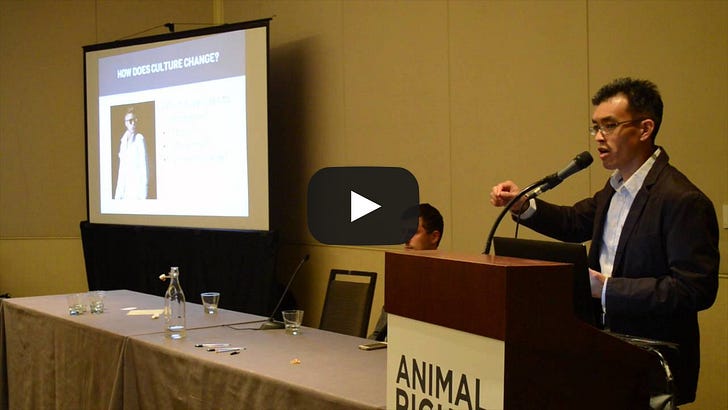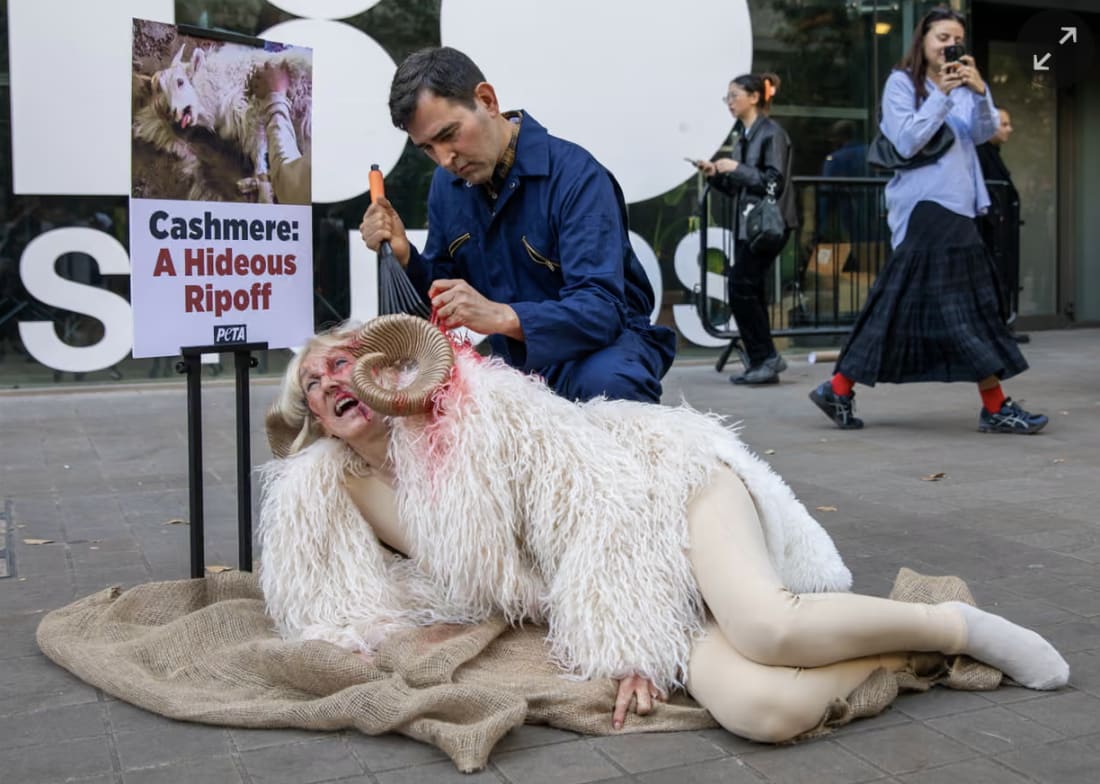|
Animal rights activists often bemoan our bad reputations. There was, for example, a viral Vox story from back in 2018 that asked, “Why do people hate vegans so much?” The piece compared the reputations of vegans to atheists and drug dealers. Many of the people most concerned about this, including the primary source of that story, co-founder of Vegan Outreach, Matt Ball, have blamed PETA and other disruptive activists for this reputational crisis.¹ Indeed, PETA came up in a recent discussion among animal rights activists as “the least effective group of all time” for this reason.
In contrast, I have said before that PETA is likely the most effective animal rights organization of all time despite its disruptive and often unpopular tactics. This is partly for historical reasons. PETA created a real movement when nothing existed in the 1970s. That is no small task. Peter Singer has told me, for example, that he attributes the influence of his groundbreaking book Animal Liberation to PETA distributing it everywhere.
But it is also because I’m sympathetic to an important counter-argument to those who worry about the reputational crisis:
Doing unpopular things is often necessary to create change.
Take, for example, the Civil Rights Movement. While Martin Luther King Jr’s reputation has been mostly whitewashed by the modern media, he was considered by the FBI “the most dangerous Negro in America” at the very moment he was marching on Washington. The public did not think much of him, either, with only 23% supporting (and 60% opposing) the now-historic march. Other civil rights campaigns at the time were similarly unpopular, with the Freedom Riders receiving only 22% support (and 61% opposing). Yet, by all accounts, the Civil Rights Movement was among the most effective in history. How?
There are two important explanations. The first is that unpopular activism overcomes social desirability bias. As a highly social species, we have a well-documented bias towards doing things that are socially desirable, even when those socially desirable things are untrue, ineffective, or even absurd. Applied to activism, this bias suggests that most people will be inclined towards avoiding unpopular tactics precisely because they are unpopular, regardless of their effectiveness. The Tea Party protests in the late 2000s, for example, were immensely unpopular with the public at large but were extremely effective at creating change, including seeding the modern MAGA movement. They gave attention to issues that otherwise would have been ignored.
The second and related explanation is that movements, particularly in their early stages, are mostly about mobilizing activists rather than directly winning over public opinion (much less changing public behavior). The renowned computational sociologist Duncan Watts once told me that it’s akin to building the kindling for a wildfire. The other parts of the ecosystem don’t really matter if you can build enough potential energy in one spot. The gay rights movement was very unpopular in 1994, with 61% having a negative view, yet within 20 years it achieved its most ambitious goals. The primary reason is that it effectively cultivated activism, mostly in a few key locations such as San Francisco and NYC, through the “coming out” movement. It didn’t matter much that people in Indiana, where I grew up, thought gay rights activists were crazy and wrong.
Indeed, in my 25+ years of studying social movements, it’s hard to find a single case of a social movement that did not rely on unpopular tactics to achieve results. I gave a talk at the national animal rights conference in 2016 on the importance of disruptive protest to this social networks theory of change.

Correlation, however, does not imply causation. Perhaps these unpopular tactics were just part of a broader rising tide, including both popular and unpopular tactics. Or perhaps these unpopular tactics would have been even more effective if they had done more to earn public sympathy. These concerns are relevant but not borne out by the evidence. Sophisticated studies of the Tea Party and Civil Rights Movement, for example, show that their unpopular protests were causing change, and not caused by change. And the only high quality evidence of the importance of public sympathy stems from violent messaging and protests, which clearly do have a counter-productive impact.
This does not imply that public opinion is irrelevant. Public opinion that suppresses activist mobilization is particularly dangerous. This is why a reputation for being “violent” is so damaging; it makes all the activists go home. But the types of public opinion that matter are much more nuanced and narrow than is commonly accepted by animal rights activists.
In short, the general concern over the movement’s reputation is exaggerated. Indeed, given the pervasive influence of social desirability bias, it is just as likely that the movement should be encouraging more unpopular tactics, rather than less. Recent polling shows that PETA’s favorability rating (43% support, 28% opposed) is far higher than the meager 22-23% support that Civil Rights activists had in the 1960s. There is an argument that PETA is too worried about public support, given this gap, and should be doing more attention-grabbing, unpopular protests.
One important person at PETA agrees with that sentiment. The Guardian recently published a long feature about Ingrid Newkirk, co-founder of PETA, asking if they had taken things too far.
Ingrid’s response was illuminating: “Too far? I don’t think we’ve gone far enough!”
Full disclosure: Ball once accused me of being an infiltrator acting on behalf of the meat industry for disruptive protests I organized against Chipotle. He was wrong about me being a mole but plausibly right about the Chipotle campaign. It was, in many ways, pretty dumb and cascaded the DxE movement towards less effective forms of disruption (i.e., retail protests versus open rescues).
Thank you for reading The Simple Heart! To help us reach more people, become a donor today.
